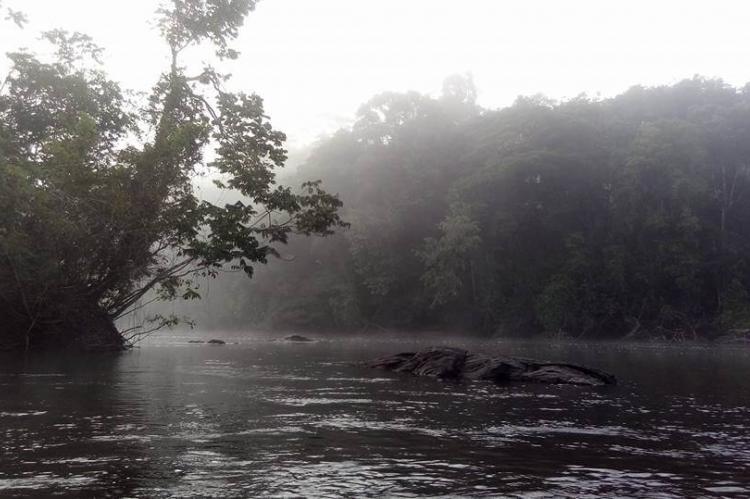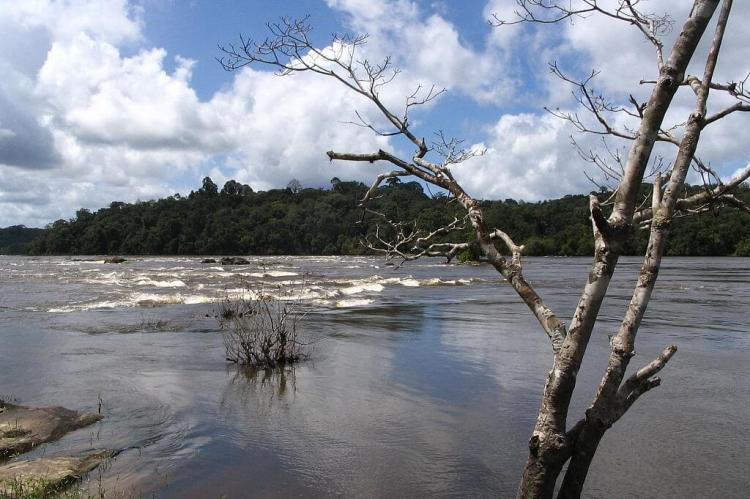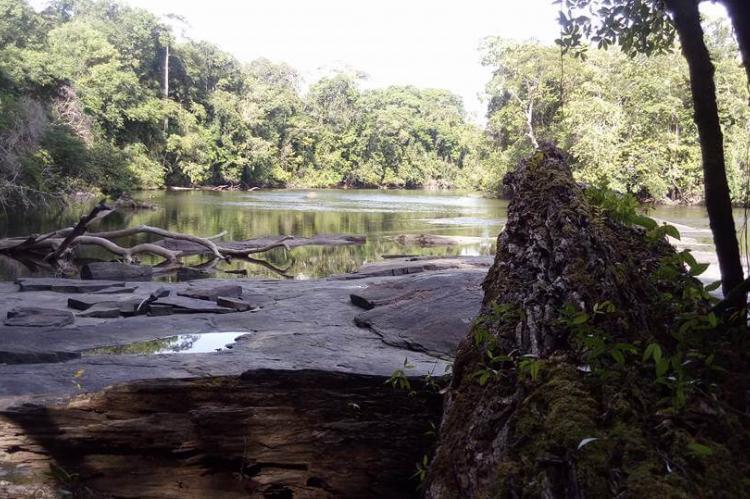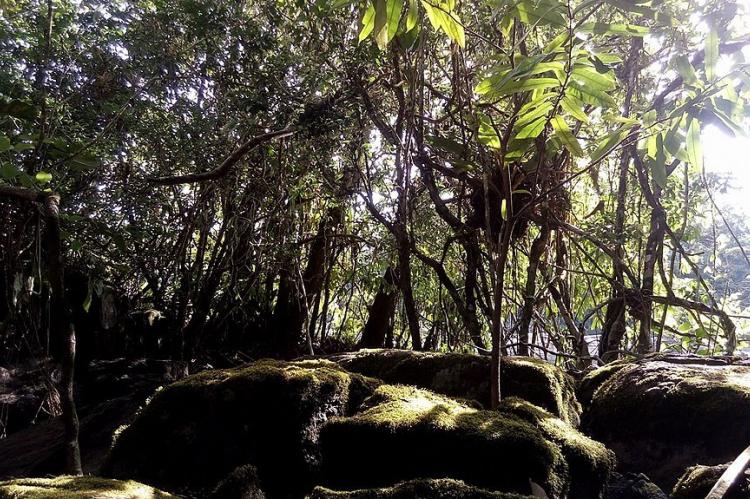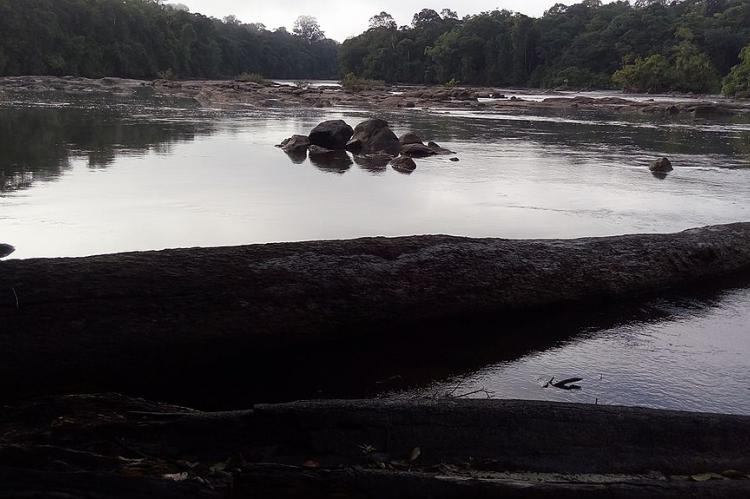Tumucumaque Mountains National Park: An Untamed Wilderness in the Heart of the Amazon
Deep within the vast expanse of the Amazon Rainforest, nestled along the borders of Brazil, French Guiana, and Suriname, lies Tumucumaque Mountains National Park – a true treasure trove of biodiversity and an untamed wilderness that has remained largely untouched by human influence.
Tumucumaque Mountains National Park: An Untamed Wilderness in the Heart of the Amazon
Deep within the vast expanse of the Amazon Rainforest, nestled along the borders of Brazil, French Guiana, and Suriname, lies Tumucumaque Mountains National Park – a true treasure trove of biodiversity and an untamed wilderness that has remained largely untouched by human influence. This park, established in 2002, stands as a testament to nature's incredible richness and resilience, offering a unique window into one of the world's most precious ecosystems.
Geographical Extent and Accessibility
Encompassing an area of more than 38,800 square kilometers (14,980 square miles), Tumucumaque Mountains National Park is a sprawling expanse of virgin rainforest, blanketed by a tapestry of forest-clad mountains and granite outcroppings that rise to an impressive 2,300 feet (700 meters) above the canopy. This vast wilderness accounts for a staggering 1% of the entire Amazon forest within Brazil, making it the world's largest tropical forest national park.
Access to this remote sanctuary is a challenge, as the park remains largely untouched by human development. Treacherous rapids and impassable waterfalls characterize local rivers most of the year, while no roads penetrate the dense foliage. This isolation has played a crucial role in preserving the park's pristine natural beauty, allowing it to remain one of the few forests on Earth that has yet to be altered by human activity.
A Unique Ecoregion: The Guianan Moist Forests
Tumucumaque Mountains National Park is remarkable for its sheer size and role in protecting a unique ecoregion known as the Guianan moist forests. This ecoregion, which spans parts of Brazil, French Guiana, and Suriname, is characterized by its distinct flora and fauna, many of which are found nowhere else on Earth.
The park's diverse landscapes, ranging from towering mountains to meandering rivers and lush lowlands, provide a rich tapestry of habitats for a wide array of species, including jaguars, primates, marine turtles, and the majestic harpy eagle.
A Biodiversity Hotspot
Tumucumaque Mountains National Park is a true biodiversity hotspot, home to a remarkable array of plant and animal species, many of which are endangered or found nowhere else in the world. Among the park's inhabitants are species on the International Union for Conservation of Nature's (IUCN) Red List of Threatened Species, such as the harpy eagle, jaguar, and spider monkey.
The region's aquatic ecosystems are equally remarkable, with fish and marine bird species endemic to this part of the Amazon. The park's rivers and streams teem with life, offering a glimpse into the incredible diversity that has evolved within this remote wilderness.
Climate and Rainfall
The climate of Tumucumaque Mountains National Park is characteristic of the tropical monsoon regions found in northern Brazil, where the Amazon biome transitions into other ecosystems. The park experiences an average temperature of 25°C (77°F) and receives between 2,000 millimeters (78.7 inches) and 3,250 millimeters (127.9 inches) of accumulated rainfall annually.
This abundant precipitation, coupled with the park's pristine ecosystems, supports a rich plant and animal life tapestry, ensuring that Tumucumaque remains a vital reservoir of biodiversity within the Amazon basin.
Conservation and Sustainable Development
Tumucumaque Mountains National Park is a critical component of the Amapá Biodiversity Corridor, a protected area established in 2003 that covers more than 70% of the Brazilian state of Amapá. This corridor serves as a vital link between the park and other protected areas, facilitating the movement and dispersal of species while safeguarding the region's ecological integrity.
The preservation of Tumucumaque Mountains National Park is essential for the conservation of its unique biodiversity and for the sustainable development of the region. By protecting this vast wilderness, the park contributes to maintaining vital ecosystem services, such as water regulation, carbon sequestration, and climate regulation, which benefit local communities and the global population.
Environmental organizations, local communities, and government agencies are continuing efforts to strike a balance between conservation and sustainable development. This ensures that the park's natural resources are managed responsibly while providing opportunities for eco-tourism, research, and education.
Tumucumaque Mountains National Park stands as a powerful reminder of the importance of preserving the world's remaining wilderness areas and their invaluable role in maintaining the delicate balance of life on our planet.
